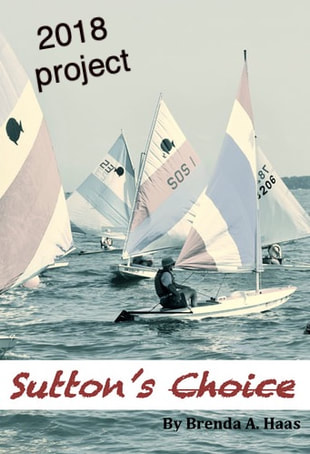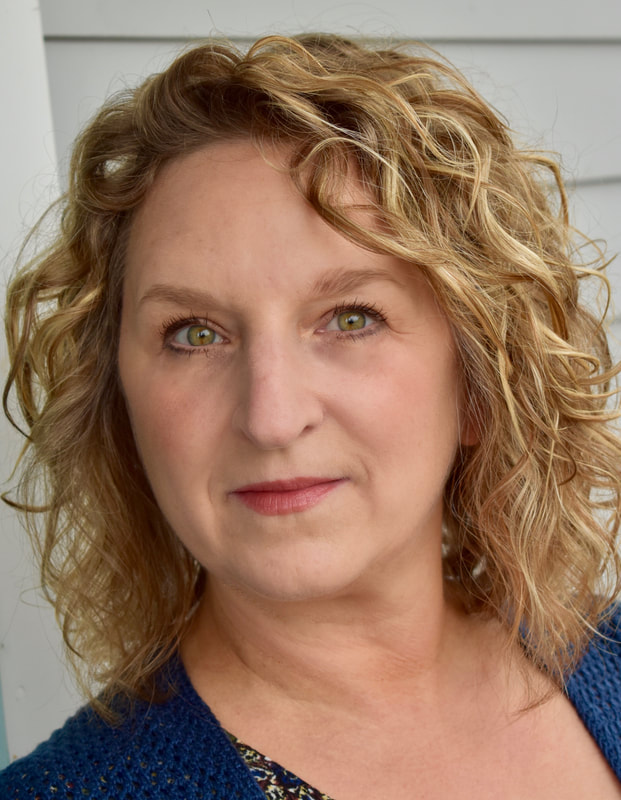
The borderline scary news? This week, it's leaving its safe haven on my computer and falling into the hands of my beta readers.
Yikes.
Pretty sure I'm going to hear some things I don't want to hear about my work-in-progress, but using beta readers at this stage, though scary, will likely make the difference between a completed manuscript that does justice to its characters/plot and an unpublishable story that just barely scratches the surface.
I'd prefer to take the extra time to get input from beta readers, rather than rush to submit to agents without proper feedback. Although I am a member of two writing critique groups and have had many sets of eyes on my writing for months now, beta readers, of all kinds, are what I need to keep me honest and true to my story.
For me, a beta reader is all about the big picture.
My writing critique partners look at my work 1-2 chapters at a time, but with a monthly gap and always with a writer's eye. Beta readers fill a different need. I treat them as exactly what they are ... READERS. I ask my beta readers to pretend they've pulled my book from a library or bookstore shelf. I encourage them to read my work as seamlessly as possible, only jotting down general notes, as needed, while they absorb the story as a whole.
Big picture.
Ultimately, it is a beta reader who will be able to give me feedback on story cohesion, character depth, pacing, content accuracy, etc., because my beta readers won't be focusing on the sentence structure and grammar, but looking at the story with a wider lens.
Choosing beta readers, however, can be a tricky thing.
"Charlotte's Choice," now dubbed "Sutton's Choice," is about a 28-year-old writer, Charlotte Sutton, who learns her estranged father Chuck, a famous sports writer and community news publisher, likely has early-onset Alzheimer's disease. Charlotte must return to Lakeside, Ohio, her small Lake Erie hometown, to take on responsibilities she never expected, never wanted, and never asked for. In addition to facing her father, and all the emotional baggage that comes with their rocky relationship, she must also face the locals she avoided all through her growing up years. Add in a failing community newspaper, an almost defunct marina, and a teenage sibling Charlotte didn't know existed, and "Sutton's Choice" becomes a minefield of medical, legal, and emotional content.
There's the rub. I'm no doctor, no lawyer, no counselor.
Did I do my research well enough when setting up all these plot points? That's something my beta readers may be able to help me with, if I've chosen them wisely.
To put a face on my ultimate beta reader for "Sutton's Choice," I need:
- a reader who is a doctor/caregiver of Alzheimer's patients
- a reader who has personal knowledge of Alzheimer's as a family member, spouse, or friend of a patient
- a reader with general dementia knowledge
- a reader with professional grief counseling knowledge or professional experience with teen depression/bullying (such as a school counselor)
- a reader the same age as my main character—about mid to late twenties
- a reader with intimate knowledge of Lakeside, Ohio and its surrounding areas
- a reader who grew up in the Lakeside, Ohio area and went through its school system, just like Charlotte
- a reader who was an only child all through the growing up years, just like Charlotte
- a reader who is from a split family, just like Charlotte
- a reader who is a parent with teenagers in the house
- a reader who is knowledgeable about sports, in all forms
- a reader who is a writer
- a reader who has working knowledge of a small, family newspaper
- a reader who has legal/personal knowledge of Ohio family law & estate planning
- a reader who has guardianship of a younger sibling
- a reader who loves women's fiction
- a reader who has a literature or English background
- a reader who is my #1 fan (my spouse) and/or a "Brenda Supporter," because every writer should have at least one of those
- MOST IMPORTANT, a reader who will be brutally honest if my manuscript sucks in certain places, but not as a whole, because a true Negative Nelly beta reader should be avoided, if at all possible
And the list could go on and on.
I was selective about who I asked to be my beta readers, but I didn't scrimp. Total, I asked 26 people, for very specific reasons, to help me with this project. Because being a beta reader is a time suck on other people's lives, I expected only about half to respond with a "yes," and I was spot on. Of the baker's dozen of confirmed beta readers, about half came from those with personal Alzheimer experience. My writing friends have a lot going on with their own work, so I was pleasantly surprised by the couple with interest. Some of my readers definitely fall under the "Brenda Supporter" category, and that's okay, because a pat on the back is always welcome. A couple lawyer friends and two educators are joining the fray. Many of the readers fill more than one bullet on my list, and most are intimately familiar with Lakeside.
All in all, I'm thrilled with the diversity of my beta readers.
Tips for working with beta readers:
- When initially asking for beta readers, send a "query-like" request giving a short synopsis of the story, what is expected of your beta readers (notes on each chapter, weekly updates on progress, or whatever you set as a goal), and why that person is qualified to help. To give them a glimpse of what they will be reading, include a PDF of the first chapter.
- Give very specific guidelines regarding the timeline of when readers can expect to receive the full manuscript and what deadline you have set for a return of materials and/or feedback. Give your readers at least a month to complete the reading. I usually allow 6-8 weeks.
- Ask all confirmed beta readers for an email address, so you can easily communicate with the group as a whole during the process.
- If possible, give your readers various format options. Some readers prefer a hardcopy they can hold in their hands and make notes in. This may be an added expense, but worth every penny in copy costs and postage, if it means you get concrete feedback. Some readers want a digital format for their computer (Give as a PDF, instead of Word doc, so changes cannot be easily made). Some readers want a download for their Kindle reader. Depending on how you've set up the initial format, you may have to experiment with PDF and Word files, to find the option that reads best on Kindle. I usually download the manuscript to my own Kindle first, so I can see what the doc download will look like. Check your Amazon Prime directions for personal doc downloads, but I've usually had the most success with a Word file.
- On both hardcopy and digital formats, include a date and your contact info. Also note in the cover sheet and/or on each page footer that all versions of the document are your property and may not be distributed elsewhere in any format without consent.
- Provide each beta reader with a general guideline sheet (no more than one page, so so as not to overwhelm them) of what you want them providing feedback about during the reading. In my case, I'm looking for fairly general input about plot viability, but beta readers can be used to watch for very specific things, depending on their background. Some beta readers can be broken into specific groups such as Grammar Police, Legal Eagles, Character/Setting Developers, etc. JUST BE VERY CLEAR ABOUT YOUR EXPECTATIONS for each, individual beta reader.
- Don't be a hound, but DO follow up about two weeks after providing readers with the manuscript, just to touch base. It can be as simple as a group email asking if anyone has any mid-read concerns or questions. This way, any reader who hasn't started will get a polite nudge to do so, and anyone who is deep into the manuscript will know you haven't forgotten them.
- Don't be a hound, but DO contact all readers about one week before the deadline you've set for return of materials/feedback, so your readers know their time with your manuscript is nearing an end.
- Determine how you wish to receive feedback and be clear to your readers about this process. Will you require all hardcopies returned to you (at your own postage expense, of course) or may they keep them and submit comments via email?
- Don't be surprised if not everyone finishes your manuscript or even responds with comments at the end of the process. Life gets in the way, and even the beta readers with the best intentions can have something interrupt their participation. Sometimes your manuscript is also just not their "cup of tea." And that's okay. That is why sending to a large number of readers is necessary. Of my baker's dozen of confirmed readers, I'll be happy if I receive constructive comments from half.
And, now I wait. Will my beta readers like it? Will they hate it? Whatever the answer, at least I know I have done everything I can to further my manuscript.
Thanks to my beta readers, I am looking at the big picture and taking "Sutton's Choice" one step closer to submission and—hopefully—publication.
#BetaReaders #WIP #AmWriting #AmEditing #WritingCommunity #NaNoWriMo #Editor #Fiction #WomensFiction #NovelIdea #MotivationMonday #MondayMotivation
 RSS Feed
RSS Feed

